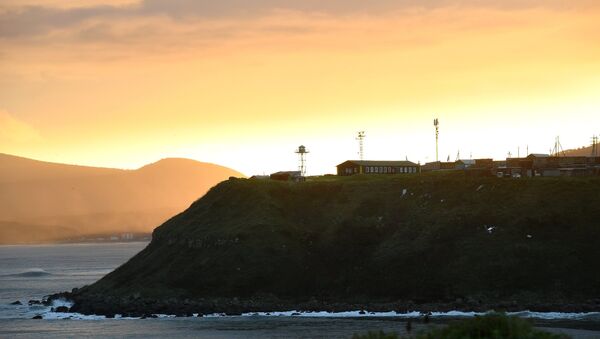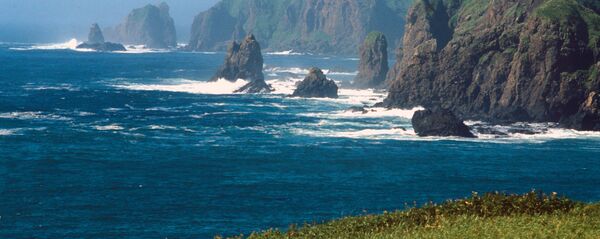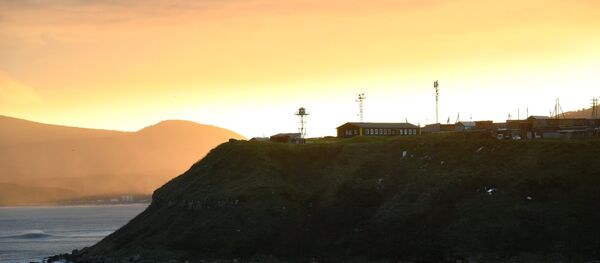The delegation comprising almost 70 people, including the representatives of 32 private companies, state and municipal structures came to Southern Kurils on Tuesday and left the islands on Saturday. The group visited 64 objects, including a salmon fertilizing facility, a hotel, hospitals and a geothermal power station.
"This [trip] helped to realize again that it is necessary to promote establishment of a special legal regime [on the islands]," Special Adviser to the Japanese Prime Minister Eiichi Hasegawa was quoted as saying by the Kyodo news agency.
The Russian-Japanese relations have long been complicated by the fact that the two nations have never signed a permanent peace treaty after World War II ended. This was due to a disagreement over a group of four islands claimed by both countries: Iturup, Kunashir, Shikotan and Habomai.
In May 2016, Japan's Prime Minister Shinzo Abe presented an eight-point bilateral economic plan during his visit to Russian resort city of Sochi, where he met with the Russian President Vladimir Putin. The plan covers such areas as oil and gas development, and the modernization of ports and airports in the Russian Far East.
On December 15-16, Putin paid a two-day working visit to Japan. During the visit to Nagato, Abe's home town, two leaders discussed joint economic activity on the Kuril Islands.





